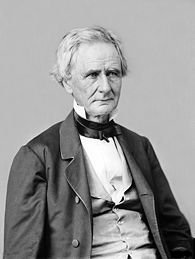Part II:
Despite Hapoalim's concerns about FSLR's Cadmium Telluride exposure, the drivers of profitability for non-European companies selling in the Eurozone will be the exchange rate.
For the industry as a whole the question will be the problem of maintaining subsidies in the face of required austerity.
On the Euro question the answer is pretty much baked into Q2 results but going forward we may see something different if the sentiment expressed in yesterday's "Ready for a Positive Euro Surprise?" comes to fruition. That was posted at EUR/USD 1.1917. With the euro up to 1.1950 we're already seeing headlines like "Stocks stabilize after Bernanke talk, euro climbs".
I've been a dollar bull since November '09 and think that BNP Paribas' call for parity by Q1 is correct in direction and probably magnitude. But between there and here the Solars might catch a break.
On the political side I don't see any way the politicians can continue spending the subsidy money.
This headline will probably prove right for about 90 days: "Needham says solar demand strong through Q3".
These guys are trying to play both concerns with "First Solar plans to double capacity at German plant".
They sterilize the exchange rate problem and get to play the jobs card with the Bundesrat.
As always heed the message of the first recipient iof the Climateer 'Our Hero" Award, from "Greek Crisis and Euro Fall Snare Clean-Energy Stocks" (AMSC; CSIQ; FSLR; STP; YGE):
The reason we posted this, way back in April 2007:
...Finally for investors in rent-seeking organizations there is the real risk that the politicians will change the rules. Heed the words of Sen. Simon Cameron, Republican and Democrat of Pennsylvania:
"The honest politician is one who when he is bought,
will stay bought."
was to point out the risk inherent in "political capitalism".
All the currently available technology alternatives are more expensive than baseload; solar photo-voltaic runs four to six times higher, wind twice as high.
Although there have been periods, in Texas, Colorado and Minnesota where wind-produced electricity was priced lower than baseload, a better indication of cost is the recently signed Power Purchase Agreement between Cape Wind and National Grid (NGG), 20.9 cents/kwh, versus the Mass. average 14.45, which itself is one of the highest in the country (U.S. average Feb. 2010, 9.43 cents).
The alt-energy sector is completely dependent on government subsidies and mandates to be competitive and those in turn are dependent on politicians.
The first thing a politician realizes is that the most patriotic, most self-sacrificing, most important thing they can do is get re-elected.
This realization tends to guide their decision-making and their votes.
In Europe they've hit the wall on the cost of the feed-in-tariffs, the public employee pay-offs and the welfare state all at the same time*, so we end up with stories like this, from Bloomberg:...
